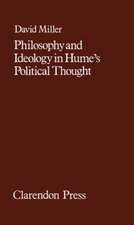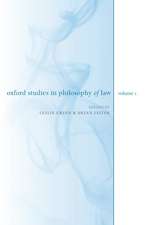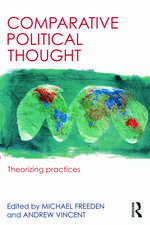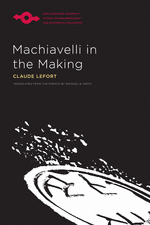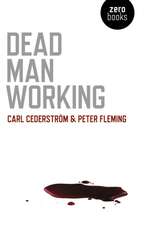Errant Affirmations: On the Philosophical Meaning of Kierkegaard's Religious Discourses
Autor David J. Kangasen Limba Engleză Hardback – 29 noi 2017
| Toate formatele și edițiile | Preț | Express |
|---|---|---|
| Paperback (1) | 196.96 lei 6-8 săpt. | |
| Bloomsbury Publishing – 24 aug 2022 | 196.96 lei 6-8 săpt. | |
| Hardback (1) | 714.44 lei 6-8 săpt. | |
| Bloomsbury Publishing – 29 noi 2017 | 714.44 lei 6-8 săpt. |
Preț: 714.44 lei
Preț vechi: 1027.60 lei
-30% Nou
Puncte Express: 1072
Preț estimativ în valută:
136.70€ • 143.12$ • 113.12£
136.70€ • 143.12$ • 113.12£
Carte tipărită la comandă
Livrare economică 05-19 aprilie
Preluare comenzi: 021 569.72.76
Specificații
ISBN-13: 9781350020054
ISBN-10: 1350020052
Pagini: 208
Dimensiuni: 156 x 234 x 23 mm
Greutate: 0.47 kg
Editura: Bloomsbury Publishing
Colecția Bloomsbury Academic
Locul publicării:London, United Kingdom
ISBN-10: 1350020052
Pagini: 208
Dimensiuni: 156 x 234 x 23 mm
Greutate: 0.47 kg
Editura: Bloomsbury Publishing
Colecția Bloomsbury Academic
Locul publicării:London, United Kingdom
Caracteristici
This title is not only an original work but elucidiates the philosophical meaning of Kierkegaard's discourses for students through close and clear readings of the text
Notă biografică
David J. Kangas was Associate Professor of philosophy at California State University, Stanislaus USA. He is the author of Kierkegaard's Instant: On Beginnings (2007).
Cuprins
prefaceacknowledgementsIntroduction: Thinking outside Authority Section One: Entering into Time1. Expectancy, the Renewal of Time 2.Patience, the Weight of Time3. The Gift of Time 4. Naked HumanitySection Two: Intensities of Affirmation5. On Confessing 6. On Death 7. Beyond InnocenceSection Three: Being Human 8. Of Spirit 9. Joy without Conditions Conclusion: Errant Affirmation.bibliographyindex
Recenzii
Beautifully written. At times it deploys specialist terms and language, and necessarily gets us to think about paradoxical issues. It is, however, largely free of unnecessary scholarly clutter and the obsessive need to cite every book or article that mentions a subject. It is a luminous work, which befits its subject matter and provides a wonderful legacy for a scholar whose humane voice will be missed.
Errant Affirmations is a wonderful book that works at several different levels. The argument is developed through a highly original series of meditations on Kierkegaard's edifying discourses that shows how these often neglected works anticipate the key issues that have engaged continental philosophy of religion over the last thirty years. Now - at last - we are led to see just why Heidegger was right when he said that there was more of philosophical interest in Kierkegaard's edifying writings than in his more obviously philosophical works. This work not only puts the discourses into the centre of contemporary philosophy of religion but also shows that any reading of Kierkegaard that neglects them is missing the main event. Like the discourses themselves Errant Affirmations is sensitive to the poetry of language and to the religious as well as to the philosophical needs of its readers. David Kangas' death has been a grievous loss to the community of Kierkegaard scholarship but Errant Affirmations at least leaves us with thoughts and insights to ponder and debate for a long time to come.
In Errant Affirmations, David Kangas opens up the richness and philosophic precision of Kierkegaard's edifying discourses. At once thoughtful and unsettling, consoling and revolutionary, Kangas' text explores Kierkegaard's vital, often startling, reframing of religious and philosophic discourse. This is a probing meditation on issues of ultimate concern, to Kierkegaard, to Kangas, and to each of us-and a moving memorial to David Kangas' intelligence, fortitude and generosity.
In truth, there are not many studies of Kierkegaard that Kierkegaard would have smiled upon. However, Errant Affirmations is certainly one of them. Writing under his favorite pseudonym, Anti-Climacus, Kierkegaard baldy stated "from the Christian point of view, everything, indeed everything, ought to serve for upbuilding," and that "everything" would, of course, include scholarly studies of Kierkegaard's upbuilding literature. And that is precisely what we have in Errant Affirmations, an elegantly written interpretation of Kierkegaard's religious discourses that is as upbuilding as it is rigorously argued.
This book offers a rich and thought-provoking reading of some of Kierkegaard's 'edifying' or 'upbuilding' discourses, presenting them as deeply philosophical. Particularly interesting is Kangas' reading of the attunement of the lilies and birds as pointing towards a form of existence beyond relating to projects. This message of what 'being today' means - radical acceptance; consenting with absolutely no reservations - takes on an added poignancy in the wake of the author's illness and premature death. It is hard not to conclude that the world of Kierkegaard Studies lost David Kangas far too soon.
Errant Affirmations is a wonderful book that works at several different levels. The argument is developed through a highly original series of meditations on Kierkegaard's edifying discourses that shows how these often neglected works anticipate the key issues that have engaged continental philosophy of religion over the last thirty years. Now - at last - we are led to see just why Heidegger was right when he said that there was more of philosophical interest in Kierkegaard's edifying writings than in his more obviously philosophical works. This work not only puts the discourses into the centre of contemporary philosophy of religion but also shows that any reading of Kierkegaard that neglects them is missing the main event. Like the discourses themselves Errant Affirmations is sensitive to the poetry of language and to the religious as well as to the philosophical needs of its readers. David Kangas' death has been a grievous loss to the community of Kierkegaard scholarship but Errant Affirmations at least leaves us with thoughts and insights to ponder and debate for a long time to come.
In Errant Affirmations, David Kangas opens up the richness and philosophic precision of Kierkegaard's edifying discourses. At once thoughtful and unsettling, consoling and revolutionary, Kangas' text explores Kierkegaard's vital, often startling, reframing of religious and philosophic discourse. This is a probing meditation on issues of ultimate concern, to Kierkegaard, to Kangas, and to each of us-and a moving memorial to David Kangas' intelligence, fortitude and generosity.
In truth, there are not many studies of Kierkegaard that Kierkegaard would have smiled upon. However, Errant Affirmations is certainly one of them. Writing under his favorite pseudonym, Anti-Climacus, Kierkegaard baldy stated "from the Christian point of view, everything, indeed everything, ought to serve for upbuilding," and that "everything" would, of course, include scholarly studies of Kierkegaard's upbuilding literature. And that is precisely what we have in Errant Affirmations, an elegantly written interpretation of Kierkegaard's religious discourses that is as upbuilding as it is rigorously argued.
This book offers a rich and thought-provoking reading of some of Kierkegaard's 'edifying' or 'upbuilding' discourses, presenting them as deeply philosophical. Particularly interesting is Kangas' reading of the attunement of the lilies and birds as pointing towards a form of existence beyond relating to projects. This message of what 'being today' means - radical acceptance; consenting with absolutely no reservations - takes on an added poignancy in the wake of the author's illness and premature death. It is hard not to conclude that the world of Kierkegaard Studies lost David Kangas far too soon.

